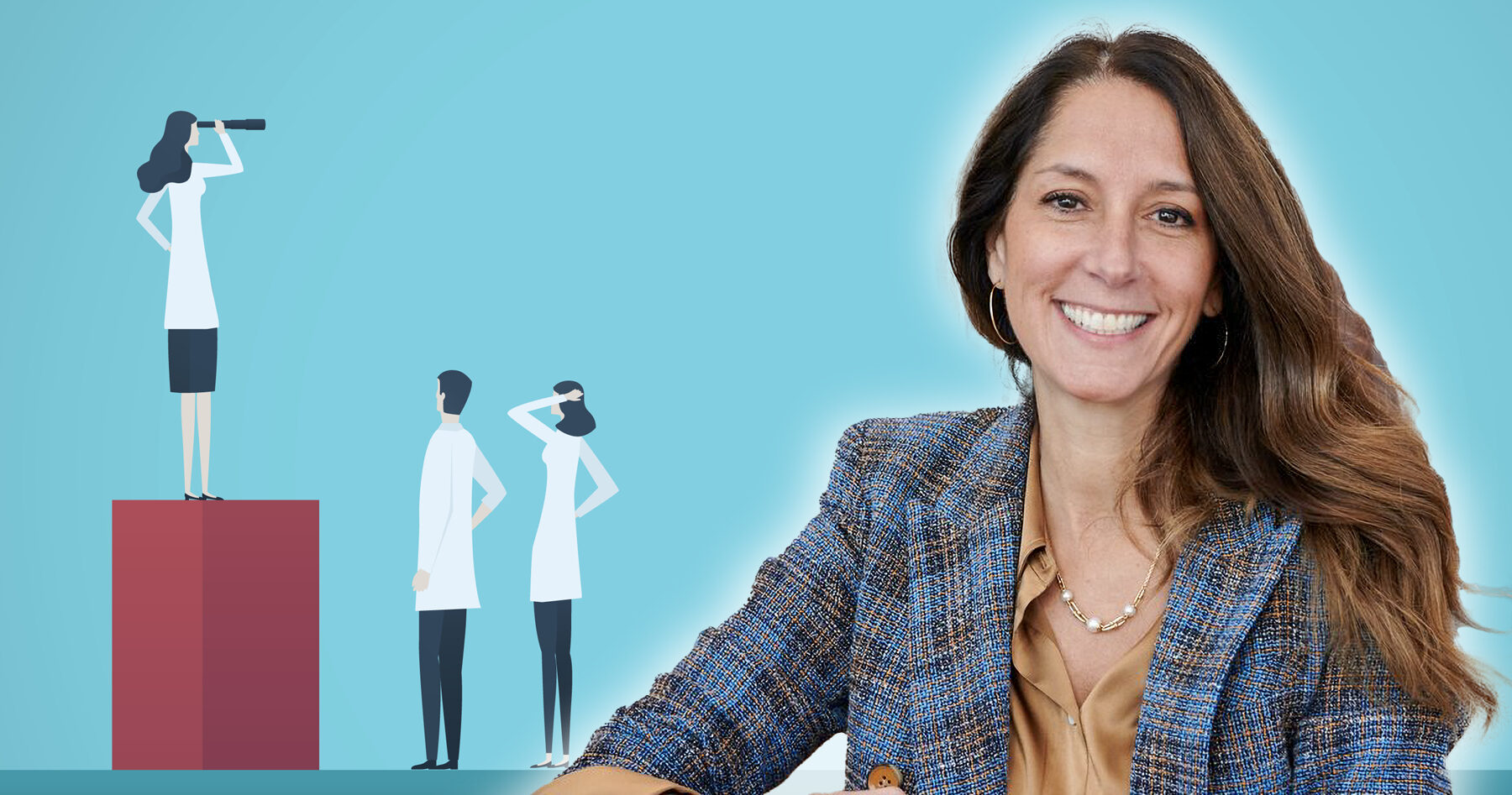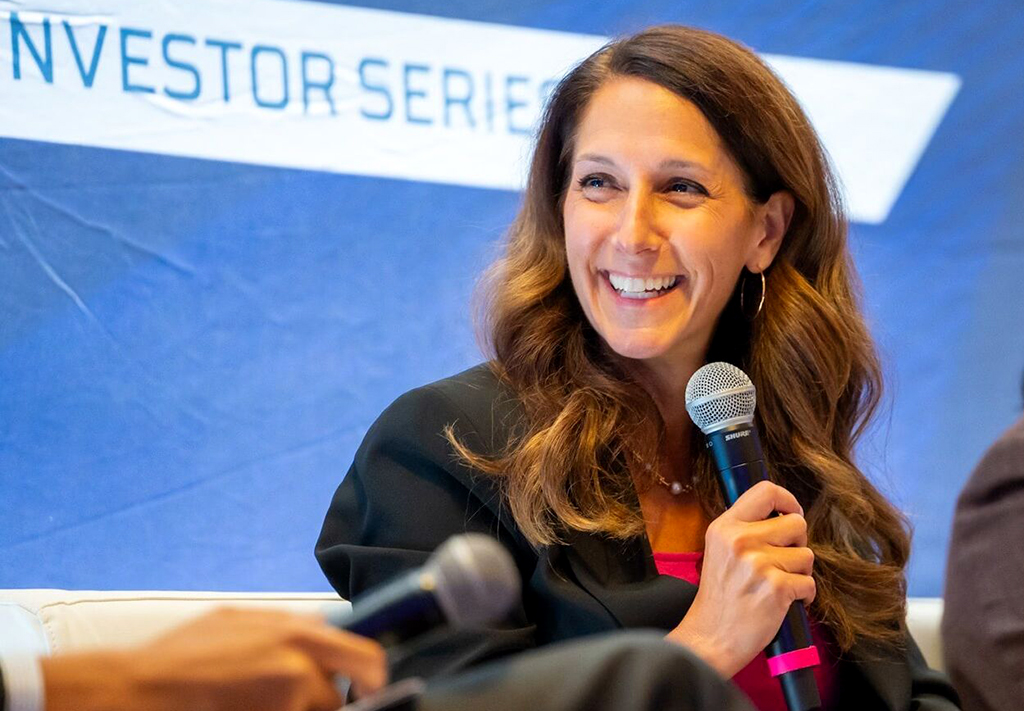Innovating, Mentoring, and Leading the Next Generation in CGT – Part 2.
By Sofia Prado-Irwin, PhD

Audrey Greenberg is a well-renowned leader and innovator in the Cell and Gene Therapy (CGT) space. In the last post of our “Leading the Future of CGT,” we spoke with Greenberg about her approach to leadership, team building, and strategy. In part two of our conversation, continue reading to learn about Greenberg’s approach to mentorship and her experiences as a mentor in the CGT industry. Greenberg has prioritized mentorship and nurturing new talent throughout her career.
The Interview
OCB: In terms of structured talent development and 1:1 mentorship, has there been a good corporate initiative you’ve seen in the past? If so, what made that program successful?
The key to a truly impactful mentorship experience is pairing mentees with mentors who not only bring relevant expertise but also have good chemistry with the mentee, creating a space for open dialogue and accountability.
AG: Early in my career, I was part of mentorship programs within large institutions like Deloitte, and I found them quite effective. Successful mentorship programs are grounded in the mentee’s motivation and clarity on what they hope to gain and the mentor’s ability to structure something meaningful to effectuate change or action. The key to a truly impactful mentorship experience is pairing mentees with mentors who not only bring relevant expertise but also have good chemistry with the mentee, creating a space for open dialogue and accountability. For mentorship to be successful, participants need to come up with clear goals and formats allowing them to help achieve objectives and create action.
In terms of formal programs, I’ve seen great initiatives within industry organizations like Phacilitate’s Women in Advanced Therapies. This program pairs mentors and mentees across different companies, which often promotes greater candor and trust, as participants can discuss challenges and goals more openly. As a mentor in some of these programs, I’ve found it deeply rewarding to support mentees as they navigate their career paths.
Informal mentorship can be equally impactful. At the Center for Breakthrough Medicines, for instance, I mentored aspiring leaders both inside and outside the organization, covering both professional and personal topics. These unofficial programs, where mentees set specific goals and expectations, often evolve into meaningful coaching relationships, providing a blend of guidance and camaraderie.
OCB: What makes a good mentor?
AG: A great mentor is someone who can genuinely relate to your experiences and challenges. They’re an active listener, skilled at asking insightful questions that help you uncover answers yourself rather than simply telling you what to do. I believe most of us already have the answers within; a mentor’s role is to guide and support us in bringing those answers to the surface.
While there are exceptional mentors who possess deep knowledge across many areas, the best mentors are often those who help you tap into your own instincts and build confidence in your judgment. Many of us, particularly women, sometimes hesitate to trust our gut instincts. A mentor who encourages us to rely on and strengthen those natural convictions makes for a transformative learning experience, ultimately fostering greater self-assurance and resilience.
While there are exceptional mentors who possess deep knowledge across many areas, the best mentors are often those who help you tap into your own instincts and build confidence in your judgment.
OCB: As a leader, how should leaders of tomorrow overcome setbacks, maintain resilience, and exercise fortitude? How could one instill those values in others?
AG: Building resilience and fortitude begins with giving people opportunities. Just because someone hasn’t tackled a particular challenge before doesn’t mean they’re incapable of succeeding. In fact, bringing fresh perspectives to a role can often lead to breakthrough ideas. Leaders should recognize that mistakes and setbacks are part of growth. Rather than shying away from failures, honor them as critical learning experiences—analyze what went wrong, pivot, and adapt.
As leaders, it’s essential to understand that failure is inevitable. You’ll likely experience many more setbacks than wins, but the key is not to take these personally. If you can reflect, learn, and keep moving forward, each setback becomes a stepping stone toward success.
It’s also important to remember that leaders aren’t perfect. Leadership is often isolating; it requires making tough decisions and sometimes going against popular opinion. Leaders need patience, conviction, and the flexibility to pivot when necessary. To instill resilience in others, lead by example and keep the bigger picture in focus. Remind yourself and your team daily of your purpose and goals. When you honor and respect those around you in the process, you earn their trust and admiration, even through difficult times.

Audrey Greenberg participates in a panel at Bioprocessing Summit’s Venture, Innovation, and Partnering Day 2024.
OCB: Would there be any sort of lasting advice that you would give a leader of tomorrow?
AG: My lasting advice to future leaders is this: Leadership is earned, not granted. Embrace the unknown—if you believe in yourself and your purpose, you will find the strength to succeed. In an industry as complex as CGT, navigating the nuances requires both resilience and adaptability. The most effective leaders are those who can balance innovation with practicality, pushing boundaries while keeping a grounded perspective.
Building strong, capable teams is essential; invest in developing the next generation of leaders. Empowering others and fostering their growth is a legacy every leader should aspire to leave. Remember that leadership is a journey of continuous learning, and each step forward is a chance to make a lasting impact.
In Reflection
Take the leap of faith! Dream big; aspire to be more than you are today; and emulate those that inspire. Ultimately, be the best version of yourself. At Orange County Bio, we are thrilled to have the opportunity to learn from the best—the members of the Leadership Advisory Council. Stay tuned for more posts in our “Leading the Future of CGT” blog series to hear from these distinguished leaders and learn about great leadership and mentorship in the CGT space.
